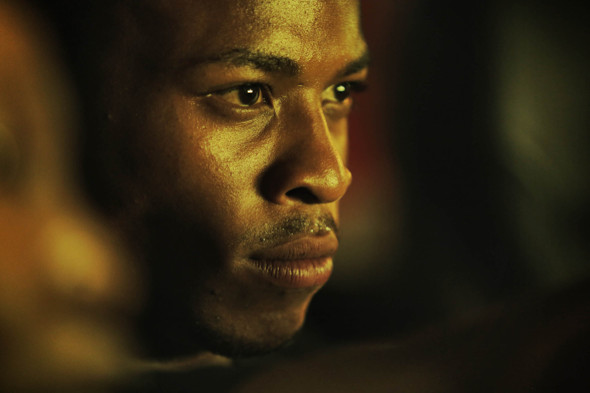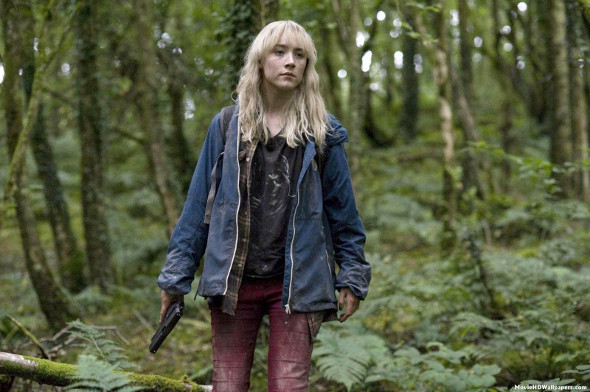Bystanders and security forces inspect the site of a car bomb attack at a bus station in Baghdad's eastern Mashtal neighborhood on October 27.
With a viewing audience sucked into a slick, gluttonous diet of television series from Breaking Bad and True Detective to House of Cards, is there really space for the conventional sit-in-the-cinema-seat, quiet art-house flick, the engaging sociopolitical doccie or the French absurdist short film? Hell, yeah.
Where else will you see Buddha playing war games, Jesus rolling a reefer, two smokin’ nuns hip-shimmying in miniskirts while a Ghanaian hip-hop vampire feeds off the thrills and spills of a visual throwback to The Sound of Music? This is what you will see in Coz Ov Moni II: FOKN Revenge, a pidgin musical opera by cool Ghanaian hip-hop rappers FOKN Bois.
Hlala! The Durban International Film Festival (Diff) is in town. Screw the circus. This is a film festival that has been cranking for 35 years and kudos must go to Peter Machen, an astute film critic-turned-successful film festival manager, for injecting fresh energy into an event facing some serious challenges – from funding to planning it all with a shadow of a skeleton staff.
More positively, though, who else but Machen would source Beti and Amare, the charming low-budget Ethiopian vampire film or insist it was high time South Africans saw Lars Von Trier’s Nymphomaniac or critically acclaimed filmmaker Ari Folman’s off-the-edge masterpiece The Congress?
Not surprisingly, there is poignant political engagement with the offerings for this year’s festival. Machen’s fine curatorial selection reflects the political reality of contemporary Africa with Timbuktu, from the Mauritanian-born, Malian-raised master Abderrahmane Sissako, which recounts the brief, brutal occupation of that ancient city by militant Islamic rebels. And then there is the mockumentary hybrid They Are the Dogs, set in Morocco in the aftermath of the Arab Spring.
Chilling documentary
A highlight of the festival is the chilling documentary Miners Shot Down by Rehad Desai, an energetic and always politically sincere and engaging filmmaker, who is a founding member of Filmmakers against Racism.
Films such as Miners Shot Down deserve serious funding and far more media attention. Narrated by Desai, it is politically sobering and absolutely heartbreaking to watch footage shot by Lonmin security staff and the police and to listen to candid interviews with dignified, courageous strike leaders.
As one of them poignantly shouts out to a crowd of rock drillers just days before the horrific massacre: “The blood of a rock driller is no different to that of a manager.”

Still from film Hard to get
And then there is an impassioned, heartfelt interview with strike leader, Mzoxolo Magidiwana, who says: “We work like slaves, even our fathers were rock drillers … Poverty forces us to forget our ambition.” If ever a film jackknifed the cheerleader enthusiasm of a celebration of our 20th anniversary of freedom and democracy – a key theme of this film festival – it is Miners Shot Down.
Softer in tone, but with the chilling 21st-century theme of ecoterrorism, is the feature film How I Live Now, a sincere portrait of postapocalyptic love and hope. The country-school holiday bliss of the lives of a small group of teenagers from the United Kingdom and one teen from the United States is shattered by nuclear fallout and the subsequent traumatic evacuations.
Terrorists have contaminated the water and children are separated from their parents and end up becoming child labourers in ghastly military camps. Directed by Kevin McDonald ( Touching the Void, King of Scotland) the film is never sensational nor melodramatic, considering the serious subject matter. At heart, it is a gentle film with gentle characters, beautifully and sensitively filmed. This makes it all the more real and lends the story line far more gravitas.
Machen has high regard for first-time South African feature filmmaker Zee Ntuli, who is set to make his name on the world stage with his debut action-romance, Hard to Get.
Elders of African cinema
Some significant voices who add unique contributions to world cinema and who will be screening their films at Diff this year include Sissako (with the generous support of Videovision and the French Institute), whom Machen describes as being one of the elders of African cinema whose voice and technical command of cinema means that he is still producing work infused with vitality.
“And I think American filmmaker Richard Linklater, with his carefully considered approach to the passing of the time, has remained relevant for two decades.”
Refreshingly, for the first time in Diff’s history, the feature competition section is dominated by African and South African titles. Imbabazi: The Pardon explores the possibilities of reconciliation in the wake of the Rwandan genocide and Difret examines the potentially destructive role of patriarchal traditions in contemporary Ethiopia.
There’s a look at the life of Rivonia trialist Ahmed Kathrada in Letters to Zohra and an account of former Constitutional Court Justice Albie Sach’s religion of reconciliation in Soft Vengeance: Albie Sachs and the New South Africa.
Providing a different side of the new South Africa are the explorations of South African music over the past two decades in Freedom Mixtape (1994-2014) and a chronicle of the local electronic music scene in Future Sound of Mzansi. Collectively, these and the other 15 films in the 20 Years strand provide a social and historical account of a country that is still in transition.
Apart from the strong African content, says Machen, there are several key focus areas this year. “We have a very strong focus in 20 Years of Freedom and Democracy, which explores, celebrates and interrogates how far we have come as a country since the transition to a free and nonracial democracy. Then we also have a British focus as part of the South Africa-United Kingdom Seasons 2014 and 2015, as well as a strong focus on films dealing with gender and sexuality from various diverse perspectives.”
He adds: “This year, we also have a particularly strong documentary section, which is reflected in the fact that we have allocated the first Friday night of the festival to the opening of the documentary section, something which we have never done before.”
The documentary section will open on July 18, Madiba’s birthday, with Khalo Matabane’s fascinating and thought-provoking Nelson Mandela: The Myth and Me.
Inevitable success
Festivalgoers will get to rub shoulders with Sachs, Max du Preez, Alex Boraine, Kathrada, Jerry Mofokeng, Israel Makoe, Fana Mokoena, Tony Kgoroke, Spoek Mathambo and actress Thishiwe Zuqubu who, Machen quips, “might not be famous yet but almost certainly will be after the inevitable success of our brilliant opening night film, Hard To Get.”
Machen, who has been attending the festival for 25 years and has been involved in a freelance capacity as a writer and programmer for the past 10 years, says it’s been very gratifying to see the festival grow from being a single-venue event with a single visiting guest to Africa’s biggest film event spread over nine venues.
It will attract hundreds of visitors from around the world and feature a film market in the form of the Durban FilmMart and the Talents programme, which aims to develop filmmaking talent on the continent.

Still from How I live now
Responding to the festival’s challenges, Machen says that the decision by the Film and Publication Board last year to refuse classification for their opening-night film had a major impact on the festival. Who can forget the outrageous censorship and banning of Of Good Report? But, Machen adds that, although the resulting avalanche of press and media was a baptism of fire for his first year as festival manager, the controversy elevated the festival to another level in terms of global awareness.
“[The] good news is that the Film and Publication Board changed its legislation in response to the events of last year,” says a chuffed Machen.
Rest assured that the technical problems the festival experienced in 2013 will not be repeated this year. Machen says that the extremely capable team at Film Tekniek, headed by Martin van Broekhoven, which has handled the festival’s projections for the past few years but was unable to work at last year’s event, will be back.
This year’s programme represents a truly wonderful selection of global filmmaking. The festival hub has moved to the newly renovated Tsogo Sun Elangeni and Maharani complex, which the festival organisers believe will raise the profile of the festival substantially.
Expect more than 200 theatrical screenings and a full seminar and workshop programme, as well as the Wavescape Film Festival, Wild Talk Africa Film Festival and various industry initiatives, including the 7th Talents Durban (in co-operation with the Berlinale Talents) and the 5th Durban FilmMart co-production market (in partnership with the Durban Film Office).
The Durban International Film Festival, organised by the Centre for Creative Arts at the University of KwaZulu-Natal, takes place from July 17 to 27. Visit www.durbanfilmfest.co.za